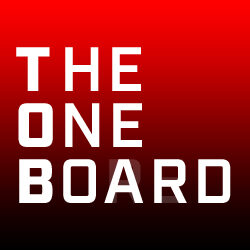This installment of The One Board originally appeared in Bowlers Journal International, May, 2016
In lauded sociologist Erving Goffman’s Interaction Ritual: Essays in Face to Face Behavior, he discusses the concept of safe supplies. Essentially, in order to avoid offending other humans during social interaction, we need to be able to maintain conversations with each other, often resorting to safe supplies, which are topics anyone can discuss to some extent. In real-world terms: small talk.
When we communicate using safe supplies, we talk about the weather, the local sports team, what we do for work or any other tired topic so generic and boring that the mere thought of being sucked into those doldrums of conversation keeps us from attending networking events or venturing into society in general.
Thankfully, bowling, which the late Goffman certainly should’ve spent time dissecting, has its own brand of safe supplies that deviates from those mind-numbing topics, and there is only one item with which we need to be familiar: one’s own bowling game.
We don’t care about the weather, we don’t realize there are other sports and we certainly don’t care what, if anything, anybody else does for a living. All we care about is our own bowling game and the perception that others also care.
Bowling’s safe supplies make socializing easy for all, particularly during league, as everyone has a personal bowling anecdote and there’s no actual listening required.
When you tell me about your game, whether good or bad, my only socially acceptable response is to tell you about my game. We do not have to listen to each other. We simply have to feign interest until it’s our turn to talk.
You start by describing every detail of your first game, in which a seventh-frame ringing 10 led to a 279, rather than simply telling me you shot 279. I act intrigued, awaiting my opening to say something self-deprecating about a 7 pin I flagged. My brief interjection gives us the social beat and fabricated laughter required before you get back into the detailed account of the eighth frame in which you caught a lucky break, making up for the good shot in the prior frame that didn’t strike. I might conjure a cliché, “It all evens out,” to which you will make some not-funny-at-all joke that causes both of us to explode in laughter. Thankfully, one of us will then be up to bowl, forcing a natural end to the conversation with neither of us being offended.
Whether due to obliviousness or selfishness (the latter likely a catalyst for the former), we bowlers are stuck in our own games to the extent we don’t even realize how our teammates or opponents are doing, despite sharing the lanes with them for hours.
Have you ever had a bad night on the lanes and remarked to a teammate how poorly you were doing, only to eventually realize your teammate was performing much worse than you were? You were so unaware of your surroundings that by insulting your own game, you further insulted your teammate’s even-more-abysmal performance. Thankfully, your teammate was likely not listening and therefore is not mad at you.
Because of this infallible social contract, every bowler can talk to every other bowler. No matter what inane tidbit I share with you about my all-important game, your response is going to be an equally inane tidbit about your all-important game. You don’t care what I say. I don’t care what you say. We’re simply fabricating a conversation to add a semi-social aspect to our weekly bowling session.
We might even become friends. Don’t worry, though. We’ll only have to see each other once a week.

